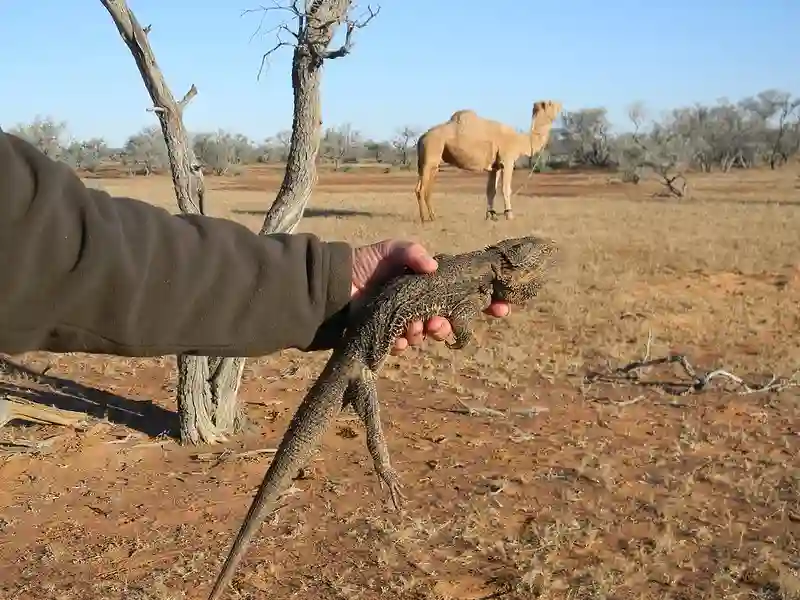Bearded dragons are generally healthy animals and do not pose significant health risks to humans unless proper hygiene practices are not followed. The primary concern when handling these reptiles is the risk of salmonella transmission which could cause food poisoning-like symptoms in humans.
When owning a bearded dragon, every owner must follow specific hygiene practices such as washing hands after holding them or cleaning their enclosures regularly. Although it may sound unnecessary, washing hands thoroughly after handling your pet is critical to prevent any risk of infection or illness transfer between you and your pet.
Maintaining good hand hygiene practices while handling your bearded dragon is essential for both you and your pet’s wellbeing. Following basic rules can help prevent infections caused by Salmonella bacteria that could lead to severe dehydration and hospitalization if left untreated.
Health Risks Associated with Bearded Dragons
Bearded dragons are popular pets for their unique appearance and docile nature. However, they can also pose a risk to human health if not handled properly. One of the main health risks associated with these reptiles is the transmission of salmonella bacteria.
Salmonella bacteria and its transmission from reptiles to humans
Salmonella is a type of bacteria found in the intestines of many animals, including bearded dragons. When these animals shed the bacteria in their feces, it can easily contaminate their surroundings, such as their cages and food dishes.
Humans can become infected with salmonella through contact with contaminated surfaces, food or water, or by handling infected animals like bearded dragons.
Symptoms and complications of salmonella infection
The symptoms of salmonella infection in humans include diarrhea, fever, and abdominal cramps that typically last 4-7 days. In severe cases, the infection can spread to other parts of the body and cause more serious complications such as dehydration or sepsis.
Children under five years old, elderly individuals, and those with weakened immune systems are especially vulnerable to complications from salmonella infection.
Importance of proper handling and hygiene practices
To minimize the risk of contracting salmonella from bearded dragons, proper handling and hygiene practices are essential. It is recommended that people who handle these pets wash their hands thoroughly with soap and warm water for at least 20 seconds after any contact.
It’s also important to keep bearded dragon habitats clean by regularly cleaning surfaces where they roam or eat. If you have a weak immune system or if you live with someone who does (such as an elderly person), you should consider avoiding contact altogether because even with proper handling and hygiene practices, there is still a risk of contracting salmonella from bearded dragons.
Hand Washing Guidelines for Bearded Dragon Owners
Step-by-step Instructions for Washing Hands after Handling a Bearded Dragon
Proper hand washing is essential after handling a bearded dragon or any pet. It helps prevent the spread of harmful bacteria, such as salmonella, which can cause severe infections and sometimes even death. The Centers for Disease Control and Prevention (CDC) recommends washing hands with soap and water for at least 20 seconds.
Here are step-by-step instructions for washing hands after handling a bearded dragon: 1. Wet your hands with clean, running water.
2. Apply soap and lather well, making sure to cover all surfaces of your hands, including between your fingers and under your nails. 3. Scrub your hands for at least 20 seconds.
4. Rinse your hands thoroughly under clean, running water. 5. Dry your hands using a clean towel or air dryer.
Recommended Frequency for Hand Washing
Bearded dragon owners should wash their hands thoroughly with soap and water every time they handle their pet or come into contact with its habitat or food/water dishes. It’s also important to wash your hands before touching food or preparing meals to avoid cross-contamination.
Tips for Preventing Cross-Contamination
Cross-contamination occurs when harmful bacteria are transferred from one surface to another through direct contact or by indirect means such as contaminated objects or food products.
Here are some tips on how to prevent cross-contamination when handling a bearded dragon:
- Use designated feeding utensils that are separate from those used by humans.
- Clean and disinfect all surfaces in the habitat regularly.
- Wear gloves when cleaning the habitat or handling any waste.
- Keep your bearded dragon away from food preparation areas.
- Wash your hands thoroughly before and after feeding or handling your pet.
- Avoid kissing or snuggling with your bearded dragon to prevent bacterial transfer.
By following these hand washing guidelines and tips for preventing cross-contamination, you can ensure that both you and your bearded dragon stay healthy and happy!
Conclusion
Recap of Key Points
It is important to note that owning a bearded dragon comes with its own set of responsibilities. These include proper hand hygiene practices such as washing your hands thoroughly after handling your pet and keeping its environment clean.
Salmonella bacteria can be present in the feces of bearded dragons and can easily spread to humans if proper precautions are not taken. Symptoms of salmonella infection can range from mild gastrointestinal distress to more severe complications, especially in vulnerable populations such as young children and the elderly.
Final Thoughts on the Importance of Hand Hygiene in Pet Care
While owning a bearded dragon can be a rewarding experience, it is important to remember that good hygiene practices are essential for both your pet’s health and yours.
Washing your hands regularly after handling your pet or its environment can help prevent the spread of harmful bacteria and keep you and your family healthy. By following these guidelines, you can ensure that you and your bearded dragon have a safe and enjoyable experience together.
Remember, always consult with a veterinarian for any concerns regarding the health of your pet. With proper care, attention to detail, and good hygiene practices, owning a bearded dragon can bring much joy into your life!



Leave a Reply